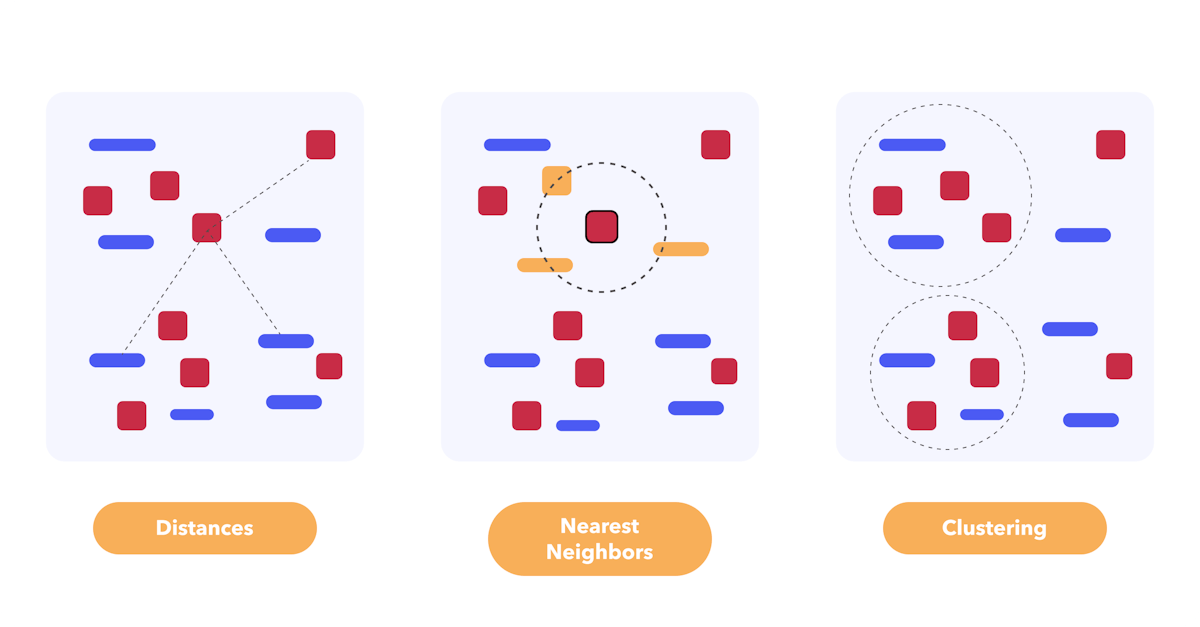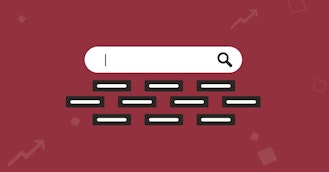
Atlas AI: AppTweak AI Model for the App Store & Google Play
With Atlas AI, AppTweak is transforming AI for mobile marketing. Just like ChatGPT, Atlas AI is a powerful deep-learning model.
What sets Atlas AI apart from ChatGPT and other mobile marketing tools is its exclusive training on millions of data points from the App Store and Google Play.
Atlas AI gives AppTweak an enhanced understanding of app store mechanics. It reveals how Apple and Google group apps, which keywords they consider relevant, and much more.
The unique insights from Atlas AI are unmatched in the industry. This deep-learning model empowers mobile marketers with relevant keyword suggestions, new competitor analyses, innovative keyword metrics, and more.
Learn more about AI features in AppTweak
Introducing Atlas AI to the world
Expert recommendations are everywhere across our platform – from our AI-generated keyword lists to competitor suggestions. Our clients strongly rely on the quality of these recommendations in their day-to-day ASO operations. Maximizing AppTweak’s positive impact on your growth is our number 1 priority. We want our algorithms to be precise and relevant, which is why we proudly introduced Atlas AI to the industry. This AI model enhances our understanding of what keywords mean in the stores and how they match any app.
Built by and for ASO specialists, Atlas AI understands that store algorithms do not exactly match real-world thinking.
Understanding store-specific semantics
The algorithms reside in an app store world, where words have different meanings, and where the connections between keywords and apps are based on ever-changing rules. We wanted to find a way to define these rules, mathematically analyze them, and be able to parallel the semantics of the stores.
Expert Tip
Let’s take the word “lime,” for example. In the real world, this keyword is closely related to the word “lemon.” However, in an app store context, these two keywords are very different: “lime” now refers to a popular scooter rental app, which is why the stores would consider “lime” to be more closely related to the keyword “scooter” than “lemon.”In our quest to better understand this logic, we built one master language learning model, Atlas AI, that captures in one place the store-specific meanings of all keywords in any language, and all apps in any country or language, to position each element on one map.
Another motivation behind Atlas AI was our drive to create a foundational algorithm that would support the core of our key features. Delivering high-quality features is a key objective at AppTweak. A standardized understanding of what apps and keywords mean to Apple and Google allows us to more seamlessly deliver high-quality, valuable features to our customers.
The birth of Atlas AI
So how did Atlas AI come about?
First, we looked at organic rankings in live app store searches to infer meaningful relationships between apps and keywords. Every day since 2014, AppTweak has collected data on millions of keywords on the App Store and Google Play in about 100 countries. This huge amount of data feeds into our state-of-the-art natural language processing (NLP) models that we have optimized in an app store context.

Thanks to this data and our algorithms, Atlas AI was born. As a global map of the App Store and Google Play, Atlas AI positions tens of millions of keywords and apps relative to each other in a meaningful way that captures core app store semantics.
Since our data is worldwide, Atlas AI differentiates keywords by language and apps by country and language. The keyword “candy crush” in English is positioned differently than “candy crush” in French due to linguistic differences.
Similarly, the app Candy Crush Saga is positioned differently in en-US (US English) compared to es-US (US Spanish), fr-FR, or any other country/language, due to linguistic and cultural nuances.
Communicating with Atlas AI
So far, Atlas AI has correctly captured the meanings of keywords and apps – but it still speaks its own language. To communicate with Atlas AI and convert the mathematical formalism of semantics into tangible information, we use 3 types of algorithms and formulas – called services. These services are:
- Distance computation
- Recovery of nearest neighbors
- Cluster identification
| Service | Goal | Example |
|---|---|---|
| Distance computation | Quantify the distance between pairs of elements: keyword-keyword, app-keyword, or app-app. | Quantifying how relevant a specific keyword is to a specific app. |
| Recovery of nearest neighbors | Retrieve the closest keywords to an app, closest keywords to another keyword, etc. | Identifying the 1,000 keywords that are semantically closest to another given keyword. |
| Cluster identification | Group apps that share a niche market, or group keywords that are almost synonymous. | Identifying typos by pinpointing all keywords that share the same root meaning. |
Although Atlas AI stores these app semantics per country and language, and keyword semantics per language, everything remains comparable. This means Atlas AI can compare keywords across languages. For instance, it can confirm that “mon amour” and “my love” are closely related. It can also find relevant French keywords for an app not yet published in any French-speaking country.

Atlas AI fuels our mobile growth engine
Now that Atlas AI stores and can compute the semantics of all apps and keywords, and we can communicate with the model itself, we want to extract the most value from it.
To achieve this, we designed a three-layer architecture. Imagine this architecture as your grandma’s amazing lasagna:
- The base layer is our core component, Atlas AI, which mathematically captures the meanings of the store’s elements, apps, and keywords. It’s like your grandma’s secret tomato sauce that makes her lasagna stand out without guests knowing exactly how.
- In the middle, we have the 3 services described above. They convert this mathematical formalism into tangible information: distances, nearest neighbors, and clusters. These are the lasagna pasta, ensuring that the subtlety of the sauce becomes palpable enough to make you want to bite.
- At the top, we have the features: what our customers see. These are the refined outcomes of our 3 services, combining raw results from Atlas AI with our industry expertise. You don’t make the best lasagna by just mixing ingredients in a bowl. You arrange them the right way and present them with a touch of parmesan and fresh basil, so your guests immediately understand the quality and value of their meal.

With this three-layer architecture, we can easily develop new features without having to refer to the semantic foundations of the stores each time. Now, every new idea we have can be directly plugged into the “service” layer that provides the core analytics, all supported by Atlas AI.
Competitor suggestions
To explain this in a more concrete way, let’s follow the three-layer architecture to suggest the right competitors for Trip Advisor in Italy-Italian:
- First, Atlas AI provides us with the semantic relationships of over 10,000 apps
- Next, we use the “nearest neighbors” service to identify the 100 most relevant apps for Trip Advisor
- Finally, we shortlist 10 competitor apps based on our unique criteria: App Power, diversity of suggestions, etc
A bright future for Atlas AI
With Atlas AI, AppTweak is the only ASO tool able to benefit from an advanced engine that leverages the true meanings of keywords and apps, specifically in an app store context.
Having benchmarked Atlas AI’s results against pre-existing AppTweak algorithms, we have observed systematic gains in quality and speed. Thanks to this, we are able to continuously develop our algorithms across our ASO platform.
Atlas AI has also enabled the launch of unique AppTweak features, including our AI-generated keyword lists, the keyword relevancy score, and more. Moving forward, we will continue to capitalize on this enhanced understanding of the app stores to release more and more advanced features, unleashing the full power of Atlas AI.
Fuel your app growth & save time with Atlas AI for the App Store and Google Play.



 Georgia Shepherd
Georgia Shepherd
 Olivier Verdin
Olivier Verdin